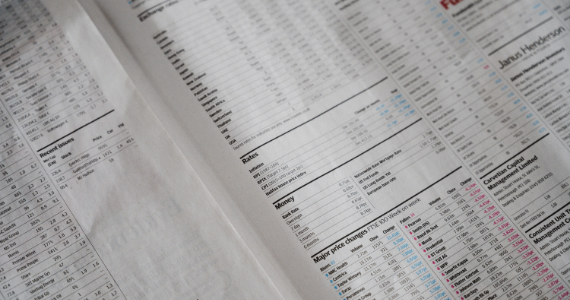Why buy shares?

When people talk about investing in shares (or stocks), they’re usually referring to common shares. These kinds of shares give you the opportunity to join in the success of public companies listed on the Australian Stock Exchange, and as such, they’re an investment that can really grow your investment portfolio.
Because you’re a part owner of the company that issues your share, it’s pretty simple: For the most part, when the company makes money, you make money. (Conversely, of course, when the company loses money, you may too).
There are a couple of ways you’ll see this part-ownership reflected.
First, the price of each share can increase in value. Not including costs, this means If you buy 50 shares at $10 a share and then the share price increases to $15, you’re now $250 richer.
The company can also choose to issue a dividend to shareholders. Say the issuer of your 50 shares announces a $2 dividend. That means you’ll be paid $100 (which you can use to buy more shares, if you wish).

Good to know
Over shorter periods of time (weeks or months), the value of a particular share can fluctuate based on a lot more than the actual performance of the company.
For example, if investors think the company could be headed for tough times—because a competitor releases a new product or because the company hasn’t been growing as fast as everyone expected, for example—the share price may go down. On the other hand, potential good news about a company can push the share price higher—even if nothing has actually changed.
And of course, the overall performance of the economy and markets will affect share price too.
Over the long term however, the main determinant of a share’s performance is how successful the underlying company has actually been.
Choosing shares:
There are several ways to categorise shares:
1. Growth & value
Companies generally fall into 1 of 2 categories depending on how they make money for their investors.
Growth companies are in an expansion phase. Any available money they have is likely to be funnelled toward the expansion of their businesses or the development of new products and services. As they grow, the value of their shares increases.
Value companies are relatively established. While they may still be growing, there’s not as much room for the kind of rapid expansion that growth companies pursue. So rather than put all their cash flow into opportunities for development, these companies are more likely to pay dividends.
2. Capitalisation
Companies can also be divided up based on the total value of their shares—their “capitalisation.” Shares are generally considered to be large-, mid-, or small-cap, although at the extremes you may also see references to mega-cap or micro-cap shares.
The boundaries between one grouping and the next aren’t firm, and they change as the overall market value changes. In general, large-cap shares make up about 65% to 75% of the entire market, and mid- and small-cap shares about 10% to 15% each.
The shares of large-cap companies tend to be more stable than those of smaller companies. But smaller companies may have more potential for growth.
3. Sectors
Companies can also be grouped by sector. As with capitalisation, there are several different sector classification systems. Most systems include categories like technology, health care, and energy.
Shares within particular sectors will tend to react in predictable ways to economic conditions, so it’s important to make sure you are adequately diversified and your investments aren’t too concentrated in specific sectors.
For example, when the economy is doing poorly, sectors like information technology, consumer discretionary, and telecommunication services may suffer because people can choose to spend less in these areas.
On the other hand, people must keep spending on things like consumer staples, utilities, and health care, so these sectors may be less affected.
Risks of investing in shares
Remember, although shares might have the potential for higher returns compared to other asset classes like bonds, they also carry higher risk.
Share markets move in cycles, reflecting the underlying strength of the economy, political factors, industry trends and market sentiment. On any given day, interest rate and inflation expectations, company profits, dividends, economic growth figures and the rise or fall of your currency may have an impact on share prices.
That’s why shares are generally most suited to investors who have a longer investment time frame and the ability to ride out any short-term volatility.
If you’re interested in putting an investment strategy in place contact us on 1300 79 80 38.
If you would like assistance getting your accounts under control as we approach the end of financial year, call us today on 1300 79 80 38.
Visit our Financial Knowledge Centre where you will access educational videos and articles, plus join our monthly e-Newsletter to help improve your financial knowledge.
If this article interested you and you would like to speak to Pat Casey on the phone, select a time to speak Pat – Financial Planner Sydney.
At Assure Wealth we specialise in helping busy, successful families structure their finances to achieve greater wealth and financial peace of mind.

Author: Pat Casey – Managing Director & Financial Planner Sydney – Assure Wealth
Download the Assure Wealth Corporate Brochure
Disclaimer: The information provided on this website has been provided as general advice only. We have not considered your financial circumstances, needs or objectives and you should seek the assistance of your Walker Lane Pty Ltd Adviser before you make any decision regarding any products mentioned in this communication. Whilst all care has been taken in the preparation of this material, no warranty is given in respect of the information provided and accordingly neither Walker Lane nor its related entities, employees or agents shall be liable on any ground whatsoever with respect to decisions or actions taken as a result of you acting upon such information.
Assure Wealth Pty Ltd ABN 31 965 466 780 Corporate Authorised Representative no. 1244817, Patrick Casey Sub-Authorised Representative no. 1244748 of Walker Lane Pty Ltd ABN 70 626 199 826, an AFSL holder No 509305.




